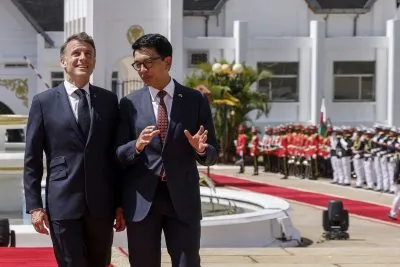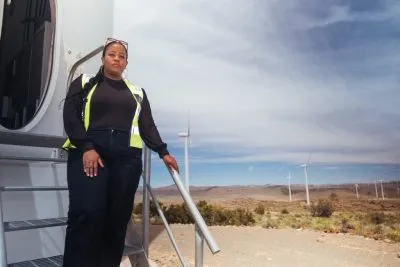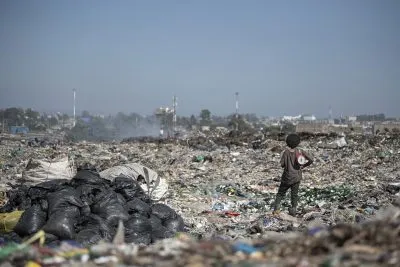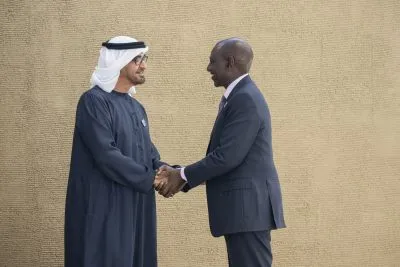During the 2002 World Summit on Sustainable Development, President Jacques Chirac of France opened his official address with the following words, “Our house is burning down and we are blind to it.” He was, of course, talking about the earth.
Over a decade later, France delivered the long-awaited global climate deal at COP21 in December 2015. The meeting culminated in the Paris Agreement, which sets the twin goals of limiting global warming to 2°C above pre-industrial levels and striving to attain the more ambitious threshold of 1.5°C above the same historical target.
The Paris Agreement has been heralded as a major breakthrough – to be sure, it imposes no binding financial commitment to support climate change adaptation and mitigation actions in the developing world and it lacks a legally binding mechanism for achieving the more ambitious 1.5°C global warming threshold – but it establishes a legal framework to accelerate the transition towards a low-carbon-development world.
An impressive number of countries, including parties with apparently conflicting interests, have agreed to abide by the Agreement, thus greatly broadening the responsibility for finding a lasting solution to global warming and, in the process, strengthening the foundational pillars of the Agreement.
The hope is that this diplomatic triumph has increased the chances of putting global interest above national interest to contain the risks of climate change.
This in itself would be a remarkable achievement and an important step in the right direction because anthropogenic global warming is a problem which requires a global solution. And it’s a collective responsibility, even though the sources of greenhouse gases, which are the primary cause of climate change, have never been uniformly distributed.
Indeed, differences in countries’ stages of development, which result from time lags in industrialisation and the uneven distribution of technology and global growth, closely reflect the geographical variation in the source and scale of carbon emissions.
Africa has contributed the least to the inexorable expansion of the global carbon footprint. It consumes less than 3% of total energy produced globally and accounts for less than 4% of total greenhouse gas emissions. However, it has agreed to bear an equal share of the responsibility in the search for a global solution.
Africa lacks the technological and financial resources to cope with global warming. It may well have been penalised for not polluting its way to prosperity like industrialised nations after the Industrial Revolution and, more recently, the emerging market economies.
Africa is one of the least-developed regions of the world. The overwhelming majority of its countries continue to depend heavily on natural resources and are thus exposed to recurrent adverse terms-of-trade shocks as seen over the last few months, with plunging oil prices and counter-shocks in commodity markets. Africa is also the region most likely to be affected by the uncertainty associated with the transition towards a low-carbon world, and yet it remains undeterred by such uncertainty and the attendant resource gap.
The sense of urgency to confront climate risk prevails across the continent. In the end, all African countries – including oil exporters, which are likely to be the most affected – fully embrace the new legal framework of global cooperation to tackle climate change, putting the global interest above their own.
In the coming years, sustaining the sense of collective responsibility and solidarity shown by Africans and by representatives of other developing regions during the negotiations will be critical to achieving an effective transition towards the low-carbon development articulated in the Paris Agreement.
Recognising this reality, the Paris Agreement rightly emphasises the need to expand the development and international transfer of carbon-free and frontier technologies between developed and developing countries. In essence, in the same way as the carbon-intensive technologies that contributed to global warming were a by-product of the Industrial Revolution, the green technologies required to decrease greenhouse gas emissions will be a by-product of the renewable revolution already under way.
In this regard, success in implementing the Paris Agreement will depend on the speed of global diffusion of green technology.
Unlike the Industrial Revolution, which was geographically lopsided, with technology used as a tool for trade and balance-of-payment surpluses in a zero-sum-game globalisation framework, the renewable-energy revolution needs to be global, achieved through uniform access to green technology.
Unless the sense of global solidarity and the commitment to technology transfer that marked the Paris Agreement are strongly reaffirmed and fostered during the implementation of the Agreement, progress in curbing greenhouse gases will be achieved at the expense of growth – or will not happen at all.
One of the noblest statements made during the Paris Climate Conference came from the current French president, François Hollande: “The world, and in particular the developed world, owes the African continent an environmental debt.”
It is one that must be honoured because the alternative would be costly not just for Africa, but for the whole world. There is no partial solution to climate change.
Dr Hippolyte Fofack is the Chief Economist of the African Export-Import Bank.
Want to continue reading? Subscribe today.
You've read all your free articles for this month! Subscribe now to enjoy full access to our content.
Digital Monthly
£8.00 / month
Receive full unlimited access to our articles, opinions, podcasts and more.
Digital Yearly
£70.00 / year
Our best value offer - save £26 and gain access to all of our digital content for an entire year!

 Sign in with Google
Sign in with Google 





